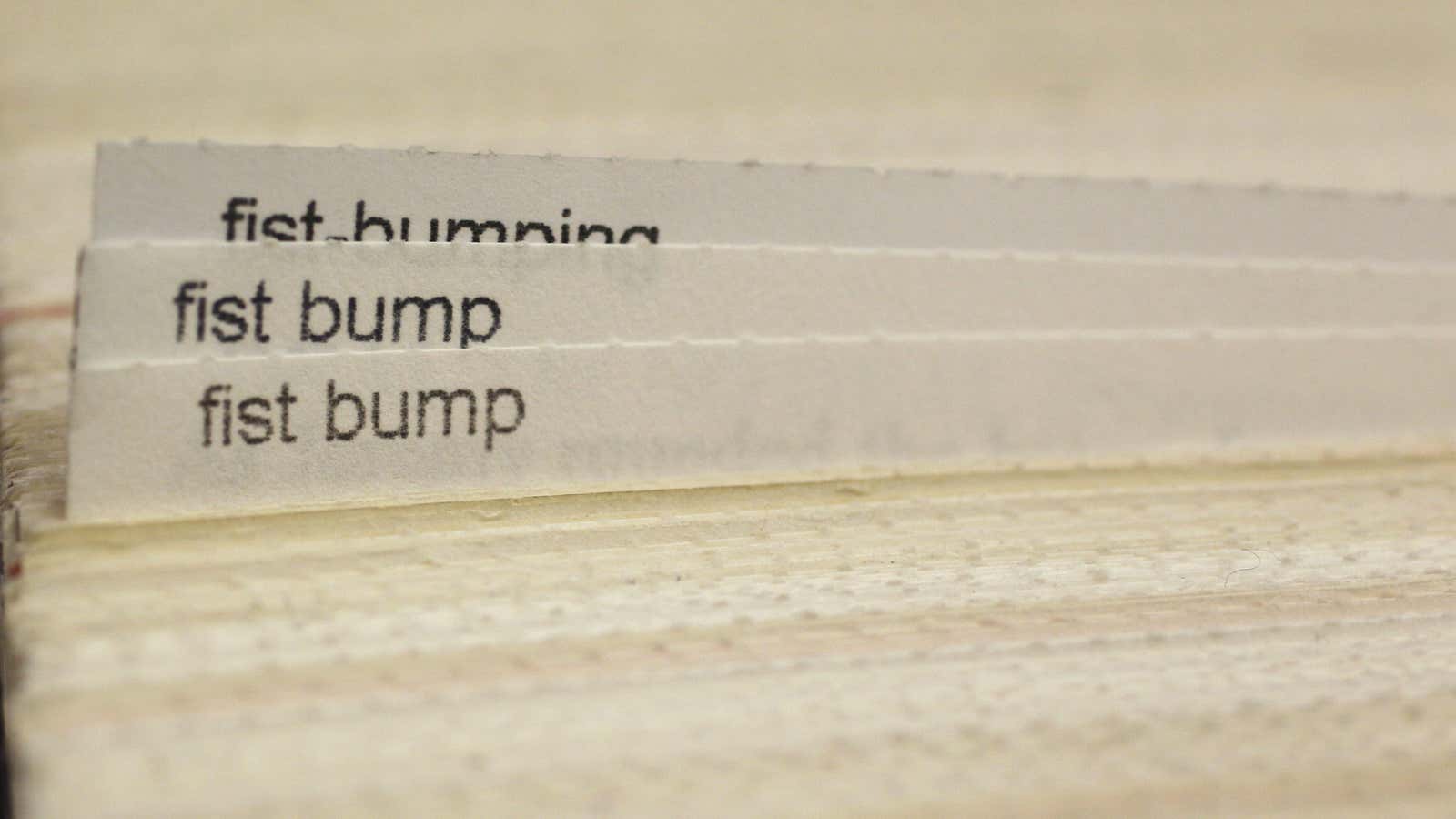The 1950s gave Americans “oral sex” and “hidden agenda”; in the 1960s they got “dirty laundry” and “ego trip.”
When the American English dictionary Merriam-Webster adds new words, it also records the year the word was first printed. A new tool from the dictionary-maker, called Time Traveler, lets you search words by the year of their first appearance in the language. By proxy, it reveals the sometimes highly specific anxieties of each historical moment.
In 1987 Americans coined “beer goggles,” a term for someone who only seems attractive because you’ve had too much to drink. In 1984 they invented “phone tag,” for when you call someone and they call you back but you keep missing each other. And in 2001, “cankles,” a word for when ankles and calves are close in size.
Time Traveler offers an unusual look at how Americans named the concerns of each new generation: The early 1980s saw the first uses of “AIDS” and “PTSD.” At the same time, Americans coined new words for a class of young urban professionals, “yuppie,” and the genocide inflicted by the Khmer Rouge, “killing field.” By the end of the decade, the US had growing concerns over “ADHD” and “physician-assisted suicide” and coined neologisms for protecting their data online—”cybersecurity”—and hovering—”helicopter”—parents.
The 1990s were marked by concepts to redefine gender expectations: “heteronormative,” “metrosexual,” “cisgender.” And as Americans grew more paranoid about GMOs and worried about their environmental impact, they added “pescatarian” and “Frankenfood.” By the mid-aughts new words crept up over the proliferation of social media, as people adjusted to publicizing their lives online: “photobomb,” “unfriend,” “humblebrag,” “tweep.”
Below see the last 40 years of American anxiety through the words invented to express them.
Health and medicine
“PTSD” and “AIDS” start the decade, and are joined by “HIV” in 1986. “ADHD” and “SSRI” come toward the end of the decade. Later “autism spectrum disorder” is printed for the first time, followed in a few years by “neurotypical.”
Work
Relationships
In the 1980s and 1990s, the US gave words to the way people assault each other: “date-rape” and “roofie,” and new words for creepers, like “sleazeball.”
Technology
The self
The early 1980s saw new ways to describe doing nothing: “chill out,” “veg out,” “couch potato,” and “cocooning.” Americans also coined all kinds of physical imperfections: “unibrow,” “cankle,” and “muffin top.” And they embraced “meh,” probably from Yiddish.
Society
“Hate crime” is used for the first time in the mid-1980s to give a name to violence motivated by hatred toward a group, and “N-word” appears as a way to reference an increasingly unacceptable slur. We also see a short-lived phrase, “mouse potato,” a computer version of a couch potato, which never quite took off.
